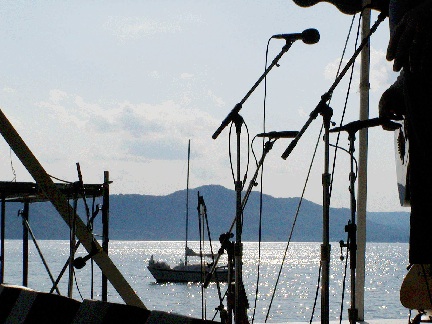

The sport made a come back in the Northeast, under the leadership of elite jockey clubs that operated the most prestigious racetracks. Horse racing was an expensive hobby for the very rich, especially in the South, but the Civil War destroyed the affluence it rested upon. At the top of the line, riverboat gamblers dressed smartly, wore expensive jewelry, and exuded refined respectability. Frontier gamblers had become the local elite. Towns at the end of the cattle trails such as Deadwood, South Dakota or Dodge City, Kansas, and major railway hubs such as Kansas City and Denver were famous for their many lavish gambling houses. Gambling was popular on the frontier during the settlement of the West nearly everyone participated in games of chance. However, as respectability set in, California gradually strengthened its laws and its policing of gambling the games went underground. San Francisco had overtaken New Orleans as the gambling capital of the US. By the 1850s, the influx of aspiring prospectors had made San Francisco a world-famous city. Prospectors working California gold placer deposits in 1850 / Wikimedia Commonsįrom 1848 to 1855, the California Gold Rush attracted ambitious young prospectors from around the world, to prospect for gold and gamble away were two sides of their manliness. The increasing pressure of legal prohibitions on gambling created risks and opportunities for illegal operations. As railroads replaced riverboat travel, other venues were closed. Anti-gambling movements shut down the lotteries. Gambling was made illegal and forced to relocate to safe havens such as New Orleans or on riverboats where the captain was the only law in force. The mind is deeply contaminated, and sentiments, the most hostile to its final peace and happiness, are harbored and indulged.” Rush continued to condemn gambling as immoral, because “it tyrannises the people beyond their control, reducing them to poverty and wretchedness. Unadulterated amusement was permissible”. Local judge Jacob Rush told men “that not all sports were banned, only those associated with gambling. Despite the attempted restrictions, gambling houses grew in popularity in various communities across the colonies. Moralists concentrated on state legislatures, passing laws to restrict gambling, pleasure halls, horse racing, and violations of the Sabbath (working on Sundays). A wave of hostility against the sinfulness of gambling emerged in the religious revivals that comprised the Second Great Awakening and the Third Great Awakening. New Orleans emerged as the nation’s leading gambling center. Lotteries continued to be used at the state and federal level in pre-revolutionary America. Early National TrendsĪ Sunday cock-fighting event in early New Orleans. In 1769, a restriction was placed on lotteries by the British Crown and became one of many issues that fueled tensions between the Colonies and Britain before the American Revolution. These lotteries often featured instant winners, which can be seen in modern technology such as at Mr. The financiers of Jamestown, Virginia funded lotteries to raise money to support their colony.


Lotteries were used not only as a form of entertainment but as a source of revenue to help fund each of the original 13 colonies. Historian Neal Millikan found approximately 392 lotteries that were held in the 13 colonies using newspaper advertisements in the colonial era. Not until the mid-18th century, when Baptists and Methodists denounced gambling as sinful, was there any challenge to the social, political, and economic dominance of this Virginian over-class.
THE EAST SIDE GAMBLERS THE BIG MACHINE CODE
They developed a code of honor regarding acquisitiveness, individualism, materialism, personal relationships, and the right to be rulers. This group of wealthy Virginian landowners made elaborate rules, established by formal codes that dictated how much to bet, and marginalized the role of the non-elite. Heavy betters demonstrated their courage and skill while promoting a sense of shared values and consciousness among the social elite. Wikimedia Commonsīy the 1680s, an emerging upper class in Virginia cemented their economic status through an iron grip on gambling in horse racing. Caricature of gambling, showing a number of men - and one woman - at an early roulette table, ca.


 0 kommentar(er)
0 kommentar(er)
